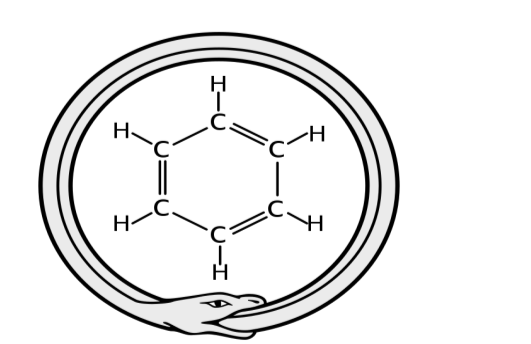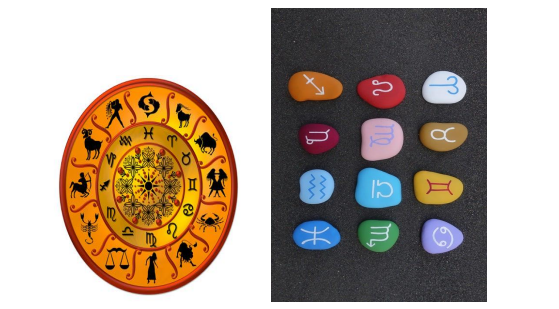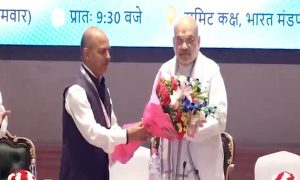Some of the readers of my articles might be wondering as to how this article comes from a person who normally pens technical articles and its statutes. When you read the article further one can decide as to whether the topic of astrology & its related branches can be referred as a tool for way forward to make important decisions at various levels of one’s life. This part of this article will therefore revolve around astrology (Jyothisha) and science and its interrelation. The subsequent parts would revolve around other forms of astrology and its subbranches to a smaller extent. I happen to be a non-professional but on and off practicing non-professional on some of these astro sciences.
The art (or science) of analysing one’s past, present & future comes under the broad classification of Jyothisha (as referred in India) has many branches & subbranches to it. Before we discuss this aspect, there are questions raised as to what believers of science feel about this, in this case astrology. In most cases hardened scientists will tell you astrology does not work.
Believers will tell you it does. Who is right? They are both right. It depends on what you mean by the word “work”. Astrology is the belief that the alignment of stars and planets affects every individual’s mood, personality, and environment, depending on when he was born. Astrologers print horoscopes in newspapers that are personalized by birth date.
These horoscopes make predictions in people’s personal lives, describe their personalities, and give them advice; all according to the position of astronomical bodies. A survey(Refl) conducted by the National Science Foundation found that 41% of respondents believe that astrology is “very scientific” or “sort of scientific”. Let us break the original question into two separate, more specific, questions: 1) Does the position of astronomical bodies affect a person’s life? 2) Can horoscopes make people feel better?
These questions are both vastly different. Both can be determined scientifically.
Fundamentally, there are four forces of nature: gravity, electromagnetism, the strong nuclear force, and the weak nuclear force. If an object affects a person, it must do so by interacting through one of these fundamental forces. For instance, strong acid burns your skin because the electromagnetic fields in the acid pull strongly enough on your skin molecules that they rip apart.
A falling rock crushes you because gravity pulls it onto you. A nuclear bomb will vaporize you because of nuclear forces. Each of the fundamental forces can be very strong. The problem is that they all die off with distance. The nuclear forces die off so quickly that they are essentially zero beyond a few nanometres. Electromagnetic forces typically extend from nanometres to kilometres. Sensitive equipment can detect electromagnetic waves (light) from the edge of the observable universe, but that light is exceptionally weak.
The gravity of a star technically extends throughout the universe, but its individual effect on the universe does not extend much beyond its solar system. Because of the effect of distance, the gravitational pull of Polaris on an earth-bound human is weaker than the gravitational pull of a gnat flitting about his head. Similarly, the electromagnetic waves (light) reaching the eye of an earth-bound human from Sirius is dimmer than the light from a firefly flitting by. If the stars and planets really had an effect on humans, then gnats and fireflies would have even more of an effect. Even if the gravity of the planets were strong enough to affect you, an alignment of the planets would not lead you to win the lottery.
Now let us view science for its some peculiar but interesting aspects.
(a)Sir Isaac Newton’s inspiration for the Law of Universal Gravitation was from the dropping of an apple from a tree. He came out with a well accepted theory which states everybody attracts the other by the force of gravity(G) which is constant and multiplied by the mass of each body (M1, M2) separated by the square of the distance (r2) between them. The mathematical formula for gravitational force is F=G(M1,M2)(/r2) where G is the gravitational constant.
(b) Postulates of kinetic theory of gases states that there is no intermolecular attraction force (construed as zero) between any two molecules of an ideal gas. So, what happened to F=(GXM1,M2)/(r³) ? ( Notice F in this case has all the dimensional units, i.e., Length, Mass & Time)
Is Newton’s law of gravitation wrong or postulates of kinetic theory of gases is wrong?
The important aspect to be borne in mind is that force is a vector, (has both magnitude & direction) and the logic of astrology and its subsciences is based on events and time (hence vector) has past present and future in the analogy. The very deep introspection of science tells us the molecule of a gas has very negligible mass & gases and are separated by a significant distance being in the gaseous state, i.e., the product of two negligible(vector) numbers multiplied by the square of the distance between them would be very very negligible and hence construed as close to zero but is not.
(c)Similarly, if we consider the second law of Newton simplified it is mathematically expressed as under: F= M x a where F= the force (again a vector) and M= mass of a body Kgr and a = acceleration in m/Sec? ( Notice F in this case has all the dimensional units, ie Length, Mass & Time) F= MA, F= Ma F= mA, f = ma Assuming M>>m & A>>a The vector F could be highest and extremely high (could reach as high and closer to infinity}, and f is the lowest could be extremely low ( could be closer to zero). Interim values could fall between infinity to zero.
Therefore, the values of different laws and its derived values are to be carefully analysed and results obtained & with those who are well versed in science & science gives different values under different conditions for the same law. Same is the case with occult/astrosciences. Is there a connect between astrosciences or is it an exclusive subject of any religion? The answer is NO.
• Many Christians are opening their minds to things that they have never dreamed of before. According to a recent study, nearly 30 percent of Catholics stated that they believed in astrology. Among white evangelicals there was 13 percent that professed a belief in astrology.
• Many Hindus believe that astrosciences are true. Some of the description of Vedas by saints of repute like Maha Periyava considers that Jyothisha as the eye of Veda.
• Varying scholars have differing opinions with regards to astrology and the judgment which Islam makes on its permissibility although majority of Islamic never believed in astrology. Some medieval Muslims took a keen interest in the study of astrology, despite the Islamic prohibitions: partly because they considered the celestial bodies to be essential, partly because the dwellers of desert-regions often travelled at night and relied upon knowledge of the constellations for guidance in their journeys. Of course, the number 786 that many Muslims from the Sub-Continent use to signify “in the name of Allah, the ever merciful, the ever compassionate,” is derived from an ancient system of Arabic numerology
Scientists who believed in astrology & occult sciences:
“A physician without a knowledge of astrology has no right to call himself a physician. “Ref3 “He who does not understand astrology is not a doctor but a fool. “Refs Hippocrates believed that the patient’s astrological sign was useful as a kind of early “medical history” and genetic screening, giving clues as to what the patient was most at risk for. He and his school believed that the signs corresponded to different areas of the body that would be in greater danger of disease and trauma in the patient. From head to toe:
Aries – Head Taurus – Throat
2.Galelio :Galileo the renowned astronomer was an astrologer too a vehement supporter of the heliocentric model of the solar system – the then- disputed fact that the Earth (and other planets) revolve around the Sun. His views were so strong and so well supported that he was ultimately tried for heresy and sentenced to house arrest. He was in fact the brain behind what is practiced as modern calculus. Sir Issac Newton took several years to understand the findings of Galileo to develop modern calculus, post Galileo’s death. Galileo was a Ref4 professional astrologer and carried out casting horoscopes.
3.Johannes Kepler: The famous mathematician Johannes Kepler who had a number of scientific breakthroughs, including discovering the elliptical orbits of planets and the other laws of planetary motion. These laws of planetary motion would go on to be used by Isaac Newton to develop his own theory of gravity.
Kepler studied under Tycho Brahe, who is also considered one of the most prominent astronomers in history. Expanding on Brahe’s models, Kepler would finish equation tables (the Rudolphine Tables) that would allow anyone to calculate the position of the planets, no matter how far into the future, based on extremely accurate models of the solar system and a precursor to calculus. Kepler also proved that tides were caused by the gravitational pull of the Moon. In addition to his great feats of scientific discovery, Kepler also served as the official astrological adviser to the Holy Roman Emperor Rudolf II. Kepler created complex horoscopes and astrological charts Ref5 for the emperor, which may have guided the fate of an entire empire. He made scientific breakthroughs, including discovering the elliptical orbits of planets and the other laws of planetary motion. These laws of planetary motion would go on to be used by Isaac Newton to develop his own theory of gravity.
Kepler studied under Tycho Brahe, who is also considered one of the most prominent astronomers in history. Expanding on Brahe’s models, Kepler would finish equation tables (the Rudolphine Tables) that would allow anyone to calculate the position of the planets, no matter how far into the future, based on extremely accurate models of the solar system and a precursor to calculus.
Kepler also proved that tides were caused by the gravitational pull of the Moon.
In addition to his great feats of scientific discovery, Kepler also served as the official astrological adviser to the Holy Roman Emperor Rudolf II. Kepler created complex horoscopes and astrological chartsRefs for the emperor, which may have guided the fate of an entire empire.
4. Julius Robert Mayor & Albert Einstein:
The ancient Greeks first proposed the idea that the total amount of matter in the universe is constant. However, Antoine Lavoisier described the law of conservation of mass (or the principle of mass/matter conservation) as a fundamental principle of physics in 1789, firmly believed that there is life after death. Julius Robert Mayer who discovered the conservation of energy in 1842 came out with a theory that energy can neither be created nor destroyed also subscribed to this ideology. Even when Albert Einstein (1879-1955) further amended the law as applicable to conservation of matter and energy, was taken by awe on Julius Robert Mayer’s logic. He felt that the body is matter and the life within the body as energy. So, when a life leaves the body it must transform into another form as per the theory. Therefore, it must get into some other body to exhibit energy. Light energy getting converted to heat, heat getting converted electricity, etc.,
5. Kekule (Research Chemist): Kekule a Russian research chemist was pondering over the permutation combinations of molecular structure and was struggling to arrive at a conclusion. It is believed that his pastor advised him to relax a while and sleep over it relying on intuition. It so happened Kekule during a dream visualised a snake that was swallowing its own tail. He then woke up and discovered that benzene has a hexagonal molecular structure with relatively strong bonding between alternating single and double bonds between carbon and hydrogen atoms. This further paved the way for his discovery on several other cyclic compounds. Kekule attributed this achievement to divine intuitional interference Ref6.

6. Indian Mathematicians: It is believed that the mathematical genius Srinivasan Ramanujan showed interest in astrology. The recently expired mathematical genius Shakuntala Devi was an astrologer herself.
Points to think over:
Astro science exists across the world, in India Palmistry, Astrology, Numerology, Naadi, Vaastu, Aroodam to name a few.
(ii) Astrology, Palmistry, Numerology, Zodiac signs in Western countries, Feng shui (Far East Asia & China the equivalent of Vaastu)
(iii)There are 30 days in a month represented by very closely to 1° each completing a circle of 360° in 365 days. (iv)There are 12 zodiac signs with one representing each month of the calendar. (V) there are 27 stars in Indian astrology with 4 sub parts or pada each thus resulting in overall 27 x 4 = 108 sub parts for all the stars, a spiritual number in Hinduism. (Vi)Roughly
the most slow-moving planet Saturn covers 30 to 36 months in a zodiac sign and it completes 3 cycles for a long lived person having a connect with another spiritual number 1008 (1008/36 = 28, which is one count above the (v) (vi) number of 27 stars. It is believed that once in about 80 years there is an additional special star Abhijit)
(Vii)This 28th Star is added as a correction factor in the error (vii) function of Sideral time.
(viii) The horoscope is cast based on the birthplace which can be corrected to latitude and longitude coordinates, date, & time of birth. A question then arises what is construed as the actual time of birth. Is this the time announced by the hospital? The time the child comes out of the mother’s womb? The time when the baby starts crying as theoretically the time the baby starts inhaling oxygen or starts breathing? Or the unknown time when the first cell was formed when the sperm fertilized the ova, which no one knows?
In a nutshell we can safely conclude that astro has some science and logic and can be relied upon to a fair degree. The question therefore arises as to why astrological predictions go wrong? The answer is astrology can never go wrong but astrologers do while deriving.
complex predictions or when extrapolating postulates. The astrologer has to be a student analysing his failures when it goes wrong like a scientist and come out successfully. He needs to be receptive, analytical, and humble to criticisms.
The only probable reason why one should not believe in zodiac signs/astrology too much is that it gets addictive. Seriously. You make a habit of reading through your horoscope daily and read what might happen next. This is not only addictive but can have very disturbing effects on your personality as well.
Ref:1 Science and Technology: Public Attitudes and Public Understanding by Stephen Hawking
Ref3: Hippocrates Corpus-a collection of innumerable scripts by Greek philosophers in 590 BC.
Ref4: Journal for history of astronomy and astrology by Andrea Bittistini
Ref5: Secrets of Astrology in Modern Europe by William Newman republished in 2001 Ref6:Nickon, Alex; Silversmith, Ernest F. (2013-10-22). Organic Chemistry: The Name Game: Modern Coined Terms and Their Origins. Elsevier. ISBN 9781483145235.
About Author

Mr. Kumar Sarangapani, Managing Partner Varaha Pipeline Engineering & Business Solutions LLP & Marine Specialist Project Consultant (RO) for community plants developed by Government Projects in Tamilnadu, Andra Pradesh, Maharashtra & Gujarat.
Kumar is”chemical engineer with about 40 years of experience.
Twitter- KumarSarangapa1




























 WhatsApp us
WhatsApp us